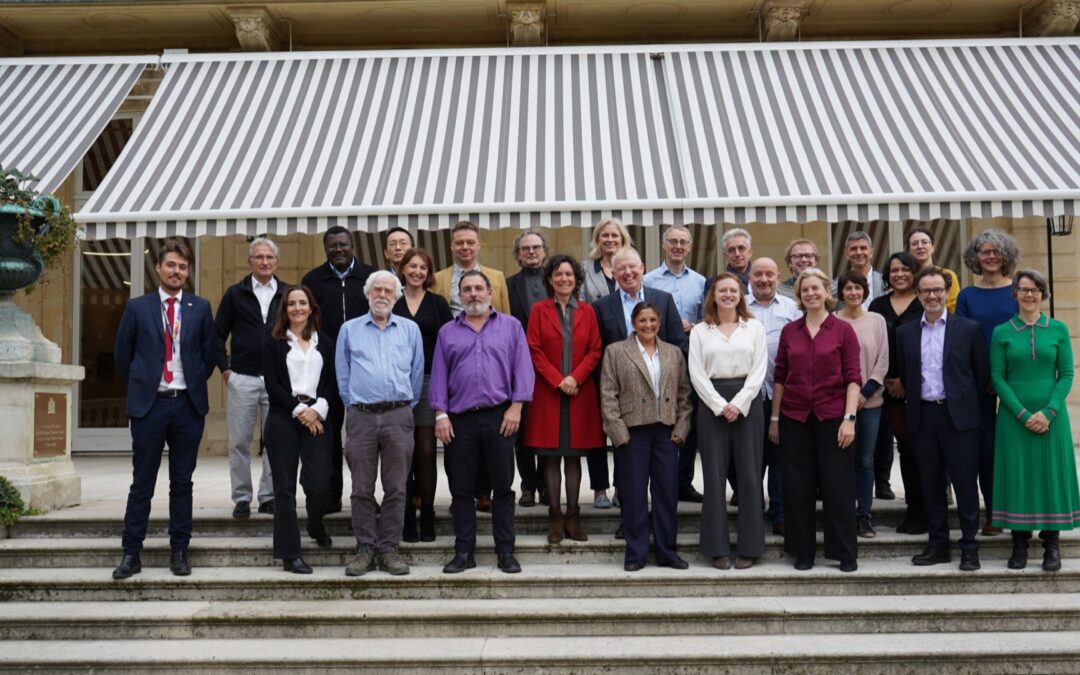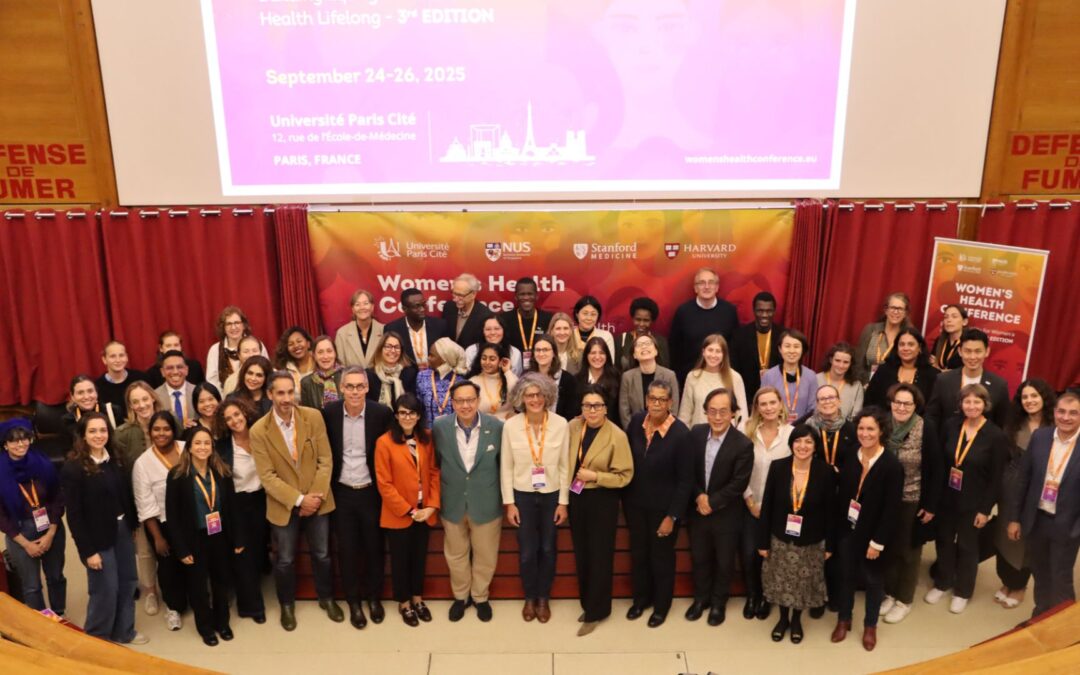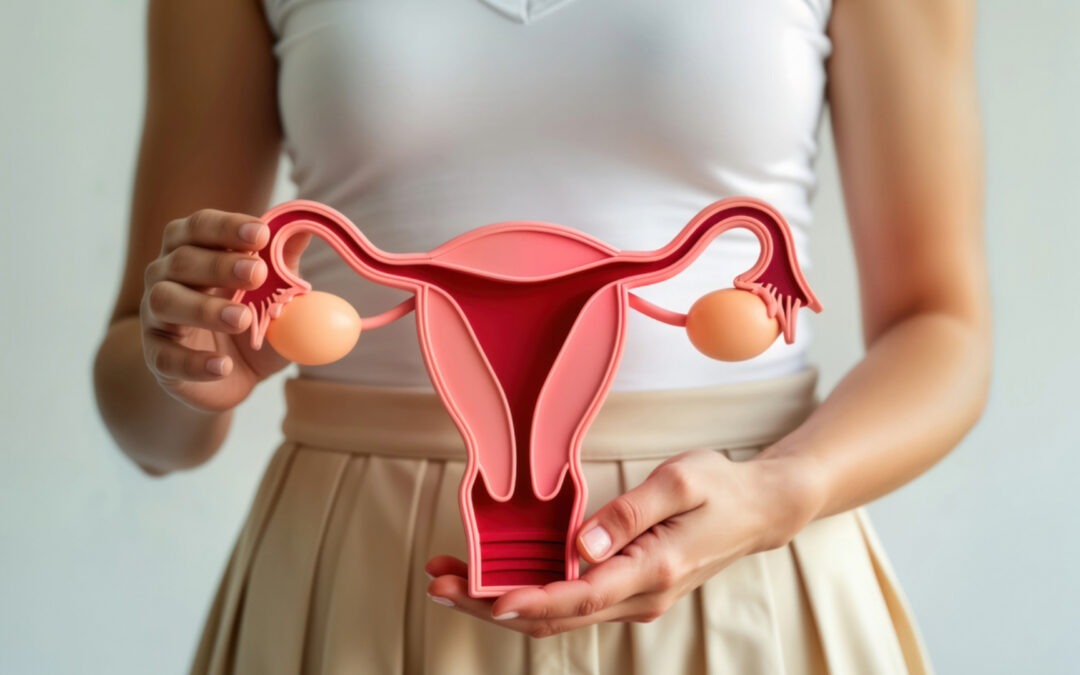About Us

Institute for Women and Interdisciplinary Research in Science and Health
iWISH at Université Paris Cité brings together a community of researchers and healthcare providers dedicated to improving knowledge of women’s health and care. Our collective project is based on several commitments:
- Broadening the field of women’s health beyond aspects specific to women by encouraging work on sex and gender differences in diseases that affect both men and women.
- To promote interdisciplinarity in the practice of research and care
- To improve the health of all women, with particular attention to socially vulnerable women and those living in Low-or Middle-Income Country
- To integrate gendered health inequalities as a key lens in research and care
With a strong focus on partnership with patient associations, industry and policymakers, we aim at accelerating the transition from research to real-world solutions and improving healthcare through innovation, making a lasting impact on women’s health.
Note on the use of the term “woman”
In our communications and general publications on this site, we use the term “woman” as well as the feminine grammatical form to designate people concerned by certain biological, social or medical experiences, such as menstruation, pregnancy or menopause.
We recognize that not all people living through these experiences necessarily identify themselves as women, and that not all women are affected by these physiological events.
This choice of language is designed to ensure clear, accessible communication, although we are aware of its limitations.
The Institute is committed to a critical and inclusive approach to gender issues in health.
Advancing women’s health : a global emergency
Despite significant advancements in medical science, structural inequities continue to undermine women’s health outcomes worldwide. While women constitute 49.5% of the global population and live longer than men on average, they spend 25% of their lives in poor health, and their health needs are systematically underfunded and understudied. Immediate action is essential to bridge the gender gap in healthcare.
Non-communicable diseases
Cardiovascular diseases cause 35% of female deaths, yet women are 50% more likely to be misdiagnosed after a heart attack due to symptom differences (AHA, 2023).
Breast cancer is the most common cancer in women, with 2.3 million new cases annually (WHO, 2023), yet research into metastatic disease remains underfunded.
Maternal and reproductive health
295,000 women die annually from preventable pregnancy-related complications (WHO, 2023). 94% of maternal deaths occur in low-resource settings, where lack of prenatal care and emergency obstetric services leads to fatal outcomes.
Mental and neurological health
Women’s maternal and reproductive health affects their long term health and longevity, yet opportunities for prevention during these crucial periods are poorly explored.
1 in 5 women worldwide suffers from a mental health disorder, with twice the risk of depression and anxiety compared to men (The Lancet). Women make up two-thirds of Alzheimer’s cases, yet sex-specific research remains insufficient.
Systemic health disparities
Gender biases delay diagnosis of autoimmune diseases (average 4.6 years for women vs. 3.5 for men) and chronic pain conditions.
Women account for just 41% of clinical trial participants, leading to drug efficacy and safety gaps.
Systemic underfunding of women’s health
Less than 1% of global healthcare R&D is allocated to female-specific conditions (World Economic Forum, 2023). Endometriosis and PCOS remain under-researched, despite affecting millions.
Women are 1.5–2x more likely to experience adverse drug reactions, yet most medications are tested on male models.
iWISH addresses these needs by combining a variety of approaches in a commitment towards health issues specific to women and their families.
A Collaborative Initiative for Women’s Health and Interdisciplinary Research
The Institute for Women and Interdisciplinary research in Science and Health, created by the Faculty of Health of Université Paris Cité, aims to federate the expertise of clinicians and researchers from various disciplines to promote excellence and innovation in research, clinical practice, education and training. Its aim is to achieve sustainable improvements in women’s health at different stages of their lives.
The project is being carried out by the university in association with the Île-de-France region.
The Institute for Women and Interdisciplinary research in Science and Health is financed by the project FIRE-UP
À lire aussi

5 novembre 2025 – Troubles psychiatriques : spécificités des femmes
Le mercredi 5 novembre 2025, l’Institut Interdisciplinaire Santé des Femmes – iWISH a organisé un webinaire, animé par Sarah Tebeka, consacré à la santé mentale, intitulé « Troubles psychiatriques, spécificités des femmes ». Cette rencontre a proposé un regard croisé entre une historienne, un psychiatre et une association de patientes, abordant les enjeux cliniques, historiques et expérientiels liés aux troubles psychiatriques chez les femmes.

Renforcer la coopération franco-britannique pour l’innovation en santé
L’Ambassade du Royaume-Uni à Paris a accueilli un atelier de deux jours réunissant des institutions scientifiques britanniques et françaises de premier plan, dont l’Université Paris Cité. Ensemble, elles ont jeté les bases de nouveaux partenariats de recherche en santé, dans des domaines cruciaux tels que la résistance aux antimicrobiens, les maladies infectieuses et la santé des femmes.

Women’s Health Conference 2025
From September 24 to 26, 2025, Université Paris Cité organized and hosted the third edition of the Women’s Health Conference, an international event bringing together researchers, practitioners, policymakers, and activists from around the world. Between practical workshops and interdisciplinary discussions, the conference offered a rich and inspiring space to exchange ideas on the scientific and societal challenges related to women’s health.

11 juin 2025 – Recherche en endométriose : Regards croisés d’une biologiste, d’une sociologue et d’une association de patientes
Le mercredi 11 juin 2025, l’Institut Interdisciplinaire Santé des Femmes – iWISH a organisé un webinaire consacré à la santé gynécologique, en particulier à l’endométriose. Cette maladie chronique se caractérise par la présence de tissu semblable à celui de l’endomètre – normalement localisé à l’intérieur de l’utérus – en dehors de celui-ci. Implanté à des endroits inhabituels (comme les ovaires, les trompes ou le péritoine), ce tissu réagit aux variations hormonales du cycle menstruel et provoque une inflammation chronique. La rencontre a proposé une approche interdisciplinaire de l’endométriose, en croisant les savoirs scientifiques, les analyses sociologiques et les vécus des patientes.
